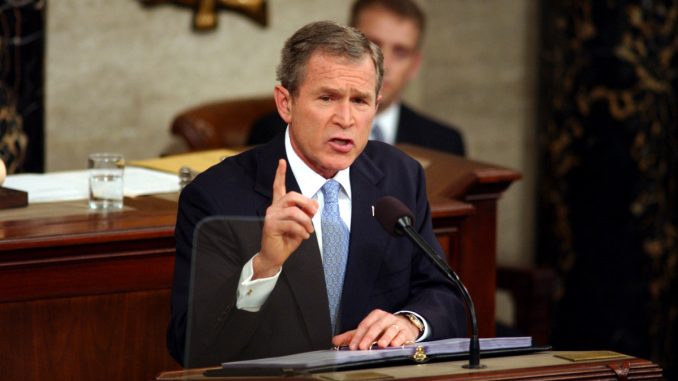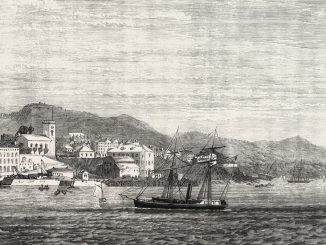

On January 29, 2002, in his first State of the Union address since the September 11 attacks, President George W. Bush describes Iraq, Iran and North Korea as an “axis of evil.”
Just over a year into his presidency and several months into a war which would eventually become the longest in American history, Bush identified the three countries as the major nodes of a wide-ranging and highly dangerous network of terrorists and other bad actors threatening the United States. The speech outlined the logic behind Bush’s “War on Terror,” a series of military engagements which would define U.S. foreign policy for the next two decades.
Bush speechwriter David Frum is credited with coining the term “axis of evil,” which was meant to evoke the Axis powers against which the United States and its allies fought in World War II. The Bush administration wanted to emphasize the outstanding threat posed by these three “terror states,” arguing that each was in the process of building weapons of mass destruction and supporting terrorist groups like Al-Qaeda. Bush’s father, former president George H.W. Bush, had invaded Iraq in 1990 after repelling the Iraqi invasion of neighboring Kuwait, but left Saddam Hussein in power.
After 9/11, George W. Bush’s administration waited less than a month before invading Afghanistan and deposing the Taliban regime there. It was not long before Bush turned his attention to “regime change” in Iraq. Although there were no direct links between Iraq, Iran and North Korea—Iraq and Iran, in fact, were commonly understood to be geopolitical enemies—the concept of an “axis of evil” united in its desire to harm Americans proved useful to those making the case for a second invasion of Iraq.
READ MORE: A Timeline of the U.S.-Led War on Terror





Be the first to comment